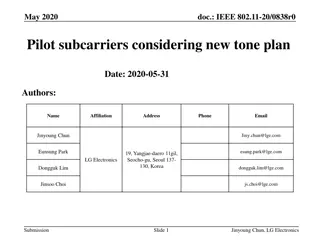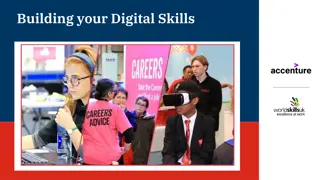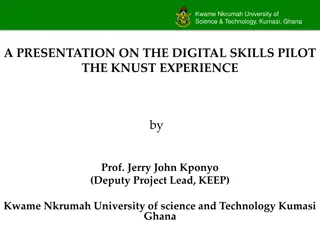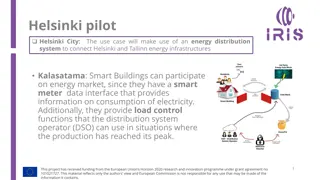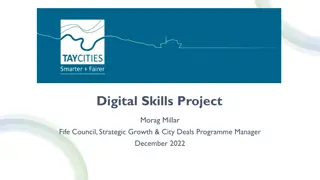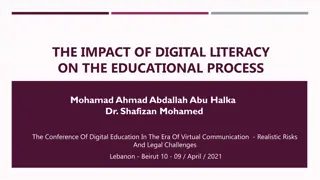
Empowering African Students in Computer Sciences with Online Micro-Credentials
"Explore the innovative project aiming to empower African students in computer sciences through a portal aggregating 150 micro-credentialed courses from IBM and FutureLearn. Offering free enrollment, blockchain-based certificates, and a user-centric experience, this initiative seeks to bridge skills gaps and promote lifelong learning. Discover key findings, achievements, and future potential for ecosystem development."
Download Presentation

Please find below an Image/Link to download the presentation.
The content on the website is provided AS IS for your information and personal use only. It may not be sold, licensed, or shared on other websites without obtaining consent from the author. If you encounter any issues during the download, it is possible that the publisher has removed the file from their server.
You are allowed to download the files provided on this website for personal or commercial use, subject to the condition that they are used lawfully. All files are the property of their respective owners.
The content on the website is provided AS IS for your information and personal use only. It may not be sold, licensed, or shared on other websites without obtaining consent from the author.
E N D
Presentation Transcript
Aims of the project Build a portal that aggregated 150 micro-credentialed online courses from both the IBM and FutureLearn platforms focused on computer sciences. Facilitate student access (from 6 African Centres of Excellence: Moi University, Obafemi Awolowo University, Ahmadu Bello University, Covenant University, University of Rwanda, Kwame Nkrumah University of Science and Technology (KNUST)) to the portal, learn-anything.io. Allow free enrolment onto the courses on both IBM and FutureLearn platforms to complete additional micro-credentialed learning opportunities filling perceived skills gaps. Issue blockchain-based, immutable, educational certificates that can be aggregated from both providers on a single lifelong learning ledger, VerifyEd.io. Evaluate the experience of the users and identify key areas for further development
Findings 18% of registrations were female, whereas the percentage of females completing courses was actually 50%, as opposed to the male completion rate of 50% from the remaining 82% of registrations. Access to the platforms occurred 24/7 as opposed to synchronous learning experiences. Mobile devices were the most common way of accessing the platforms. Top 3 courses by completion were: Cybersecurity, Coding and Data Science Top 3 courses by registrations were: Introduction to Cyber Security, Object-oriented Programming in Python, Begin Programming: Build Your First Mobile Game Two students aggregated blockchain credentials from both IBM and FutureLearn and another requested their degree certificate be issued on VerifyEd too.
Potentials for the Future: Ecosystem Development Approach for the learning, recruitment and private sector participation









